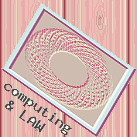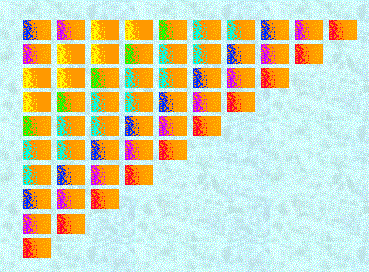Dr. Ephraim Nissan
Visiting scholar
Department of Computing,
Goldsmiths College, University of London,
25-27 St. James, New Cross,
London SE14 6NW, England, U.K.
A scholar with
nearly 350 publications
of all kinds, of which
nearly 130 are journal articles.
He has been a guest editor
for journals about 20 times since the late 1990s,
and has been founding joint editor or associate editor
of four scholarly journals since the late 1980s, of
which two at present.
He has been engaged in artificial intelligence
research within computer science (e.g.,
innovative tools for engineering resulted),
but he also has quite a substantial record in the humanities,
and in the latter,
he has a honorary fellowship at the University of Manchester.
His employment record has encompassed departments in either
computer science, or the humanities.
-
Click
here
to access a full publication list,
-
Click
here
to access a compact list of select publications from cultural studies.
-
Click
here
for a humanities-oriented index by area.
-
Click
here
to access an annotated list of a broad selection
of publications, these being from the humanities or law
(but excluding computer science papers, unless they
are interdisciplinary and relevant to either the humanities, or law).
In
computer science,
his most innovative contributions include:
-
 Modelling the reasoning about legal evidence, a field within AI & Law that he has bootstrapped into existence, in both an authorial and organisational and editorial capacity, and on which he has authored a book in two volumes,
Legal Evidence, Police Investigation, Case Argumentation, and Computer Tools
(front cover here).
Click
here
to access the publisher's webpage for this book.
Modelling the reasoning about legal evidence, a field within AI & Law that he has bootstrapped into existence, in both an authorial and organisational and editorial capacity, and on which he has authored a book in two volumes,
Legal Evidence, Police Investigation, Case Argumentation, and Computer Tools
(front cover here).
Click
here
to access the publisher's webpage for this book.
Click
here
to access a detailed table of contents of both volumes.
His earliest project in this domain, in the late 1980s, was ALIBI,
which like Thaggard's ECHO, was seminal in the domain.
Episodic formulae
for representing narratives of various kinds.
Applications thus far have included
public policy, embodied agents, historical narratives,
mistaken or misappropriated identity, group identity,
social attitudes and prejudice, law or misconduct,
scientific controversies, folklore of popular culture,
play plots, and otherwise the belles letters.
 Generation of narrative explanation, either realistic
(ALIBI),
or humorous
(the ongoing GALLURA project).
Generation of narrative explanation, either realistic
(ALIBI),
or humorous
(the ongoing GALLURA project).
Humour studies (in which he is editor of two journals)
are
cross-disciplinary,
 and in particular,
computational modelling of humour
is an area within
artificial intelligence.
Click
here
or
here
for Nissan's activities in the domain.
and in particular,
computational modelling of humour
is an area within
artificial intelligence.
Click
here
or
here
for Nissan's activities in the domain.
He is also editor-in-chief of a book series
published by Benjamins in Amsterdam,
Topics in Humor Research.
As to the journals, click
here
and
here.
In 1986-2001, Nissan made a significant and sustained contribution
(see publications)
 to an economically important domain in engineering:
in-core fuel management
(fuel reload design).
to an economically important domain in engineering:
in-core fuel management
(fuel reload design).
 Both the ruleset-based version, and later on,
the evolutionary computing version of the
automated refueller were for a while
the most most efficient of their kind.
The ruleset-based refueller was the first working
software of its kind.
Nissan was also guest-editor on AI for power generation.
Further innovative (but older) projects in computer science
are enumerated later.
Both the ruleset-based version, and later on,
the evolutionary computing version of the
automated refueller were for a while
the most most efficient of their kind.
The ruleset-based refueller was the first working
software of its kind.
Nissan was also guest-editor on AI for power generation.
Further innovative (but older) projects in computer science
are enumerated later.
In his research in the
humanities,
 Nissan has adopted narrative-oriented, anthropological, philological, literary,
or linguistic approaches (and from humanities computing, too).
His research in the humanities appears in journals that include
for example
Semiotica,
American Journal of Semiotics,
Quaderni di Semantica,
Pragmatics & Cognition,
Journal of the American Oriental Society,
Annali dell'Istituto Orientale di Napoli (AION),
Aula Orientalis,
Journal for the Study of the Pseudepigrapha,
Fabula,
Ludica,
and the European Review of History.
Nissan has adopted narrative-oriented, anthropological, philological, literary,
or linguistic approaches (and from humanities computing, too).
His research in the humanities appears in journals that include
for example
Semiotica,
American Journal of Semiotics,
Quaderni di Semantica,
Pragmatics & Cognition,
Journal of the American Oriental Society,
Annali dell'Istituto Orientale di Napoli (AION),
Aula Orientalis,
Journal for the Study of the Pseudepigrapha,
Fabula,
Ludica,
and the European Review of History.
Journal special issues with him as guest-editor include ones
in the journals
Annals of Mathematics and Artificial Intelligence, 2008;
Applied Artificial Intelligence, 2004 and 2009;
Artificial Intelligence and Law, 2001;
Artificial Intelligence for Engineering Design, Analysis and Manufacturing (AIEDAM), 1999;
Computational Intelligence, 2009;
Computers and Artificial Intelligence,1998;
Computing and Informatics, 2001;
Cybernetics and Systems, 2003 (two double issues), and 2008;
Information and Communications Technology Law, 1998, 2001;
International Journal on Artificial Intelligence Tools, 2007;
Journal of Educational Computing Research, 1997;
Journal of Intelligent and Fuzzy Systems, 2007;
Journal of Intelligent and Robotic Systems, 2008.
For New Review of Applied Expert Systems,
he edited thematic sections in 1998 and 1999.
More projects in
computer science:
-
Already in the mid-1980s, Nissan advocated
deeply nested database relations
(whereas others who researched nested relations wanted them only
shallowly nested). He described them in metaschemata in his
CuProS specification language
(Cupros stands for Customization Production System).
He directed his students in the implementation of
versions of CuProS-based query processors,
the most sophisticated being implemented in 1989
in Prolog by J. Ell-Sana (who grew to become a scholar, too).
Later on, independently, from the mid-1990s, deeply nested
relations described by metaschemata became fashionable,
with the rise of XML.
-
In computational linguistics, in the 1980s Nissan developed
ONOMATURGE, a word-formation expert system for
nonconcatenative lexical derivation and compounding,
which moreover evaluated and ranked the expected
psycho-linguistic transparency of candidate
neologisms it formed out of an input definition.
The ranking was calculated, in the face of the polysemy
of both the lexical morpheme and derivational morpheme
resorted to in forming the coinage.
Terms already in the lexicon of the given natural language,
as well as lexical roots, and lexical derivation patterns
(or possibly affixes) had metadata about them
(e.g., semantics, or some metrics of usage)
described in deeply nested relations.
This project was prized.
Just like CuProS being in the 1980s a forerunner of the status
that XML eventually gained,
and ALIBI being in 1989 one of the seminal projects
of AI modelling of the reasoning about legal evidence
(a filed that gained momentum around 2000 especially
because of several editorial initiatives of Nissan himself,
intended to produce to specification a critical mass of research),
there also were other forerunners, which were
instead tools or ideas from relatively minor projects
that only resulted in one published paper:
-
In 1993, Nissan published
Cyberspace for Animal Husbandry,
in the journal
Computers and Electronics in Agriculture,
8(3), pp. 251-259,
a precursor by almost twenty years of
virtual environments with animal instead of human subjects.
The idea was first presented in that paper.
-
In 1987, he published a paper describing a piece of software,
implemented by his students under his direction,
An Expert System for Gastronomy and Terminal Food-Processing,
published in the
International Journal of Hospitality Management,
6(4), pp. 207-215. The tool, suggesting what to cook
in a large kitchen based on the inventory of available ingredients,
this being a function that eventually found
finds a parallel in a function of the Microsoft Home in 2004.
Even though the latter uses radio-frequency identification tags
for inventory tracking, the basic function is like that of the 1987 project.
-
In 1996, Nissan published (with S.E. Shimony)
TAMBALACOQUE: For a Formal Account of the Gist of a Scholarly Argument,
in the journal
Knowledge Organization,
23(3), pp. 135-146.
It proposed a markup for argumentation.
In 1999, a different, independently developed markup for argumentation
was tentatively claimed to be the first,
in a paper by J.-F. Delannoy
(see
here).
 Ephraim
Nissan
Ephraim
Nissan

|


 Modelling the reasoning about legal evidence, a field within AI & Law that he has bootstrapped into existence, in both an authorial and organisational and editorial capacity, and on which he has authored a book in two volumes,
Legal Evidence, Police Investigation, Case Argumentation, and Computer Tools
(front cover here).
Click
here
to access the publisher's webpage for this book.
Modelling the reasoning about legal evidence, a field within AI & Law that he has bootstrapped into existence, in both an authorial and organisational and editorial capacity, and on which he has authored a book in two volumes,
Legal Evidence, Police Investigation, Case Argumentation, and Computer Tools
(front cover here).
Click
here
to access the publisher's webpage for this book.
 Generation of narrative explanation, either realistic
(ALIBI),
or humorous
(the ongoing GALLURA project).
Generation of narrative explanation, either realistic
(ALIBI),
or humorous
(the ongoing GALLURA project).
 and in particular,
and in particular,
 to an economically important domain in engineering:
in-core fuel management
to an economically important domain in engineering:
in-core fuel management
 Both the ruleset-based version, and later on,
the evolutionary computing version of the
automated refueller were for a while
the most most efficient of their kind.
The ruleset-based refueller was the first working
software of its kind.
Nissan was also guest-editor on AI for power generation.
Further innovative (but older) projects in computer science
are enumerated later.
Both the ruleset-based version, and later on,
the evolutionary computing version of the
automated refueller were for a while
the most most efficient of their kind.
The ruleset-based refueller was the first working
software of its kind.
Nissan was also guest-editor on AI for power generation.
Further innovative (but older) projects in computer science
are enumerated later.

